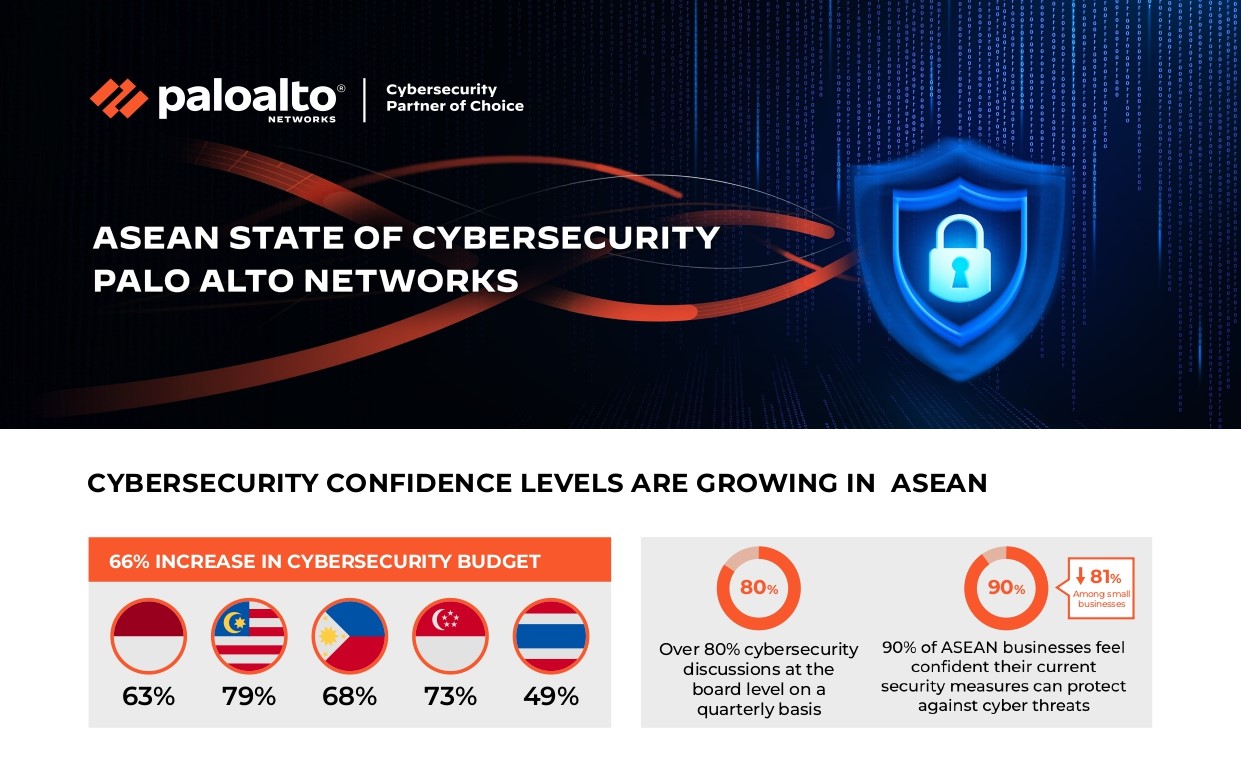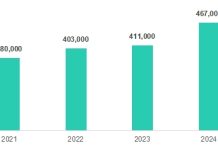Palo Alto Networks, a global leader in cybersecurity, has released its highly anticipated “2023 State of Cybersecurity ASEAN” report. The findings of the study reveal a disturbing trend in Malaysia, where the nation witnessed the highest number of disruptive cyber-attacks across the ASEAN region over the past year.
Shockingly, one-third of Malaysian organisations encountered a staggering 50% or more increase in cybersecurity incidents. A paramount concern remains the safeguarding of operational technology (OT), especially within critical infrastructures, as essential services bore the brunt of disruptive attacks compared to other sectors.
Key Cybersecurity Concerns in Malaysia:
- Malware (64%), Ransomware Attacks (64%), and Password Attacks (47%): These are the primary attack vectors causing the utmost anxiety among Malaysian organisations.
- Cloud-Based Challenges (55%): The growing reliance on cloud-based services and applications has made cybersecurity more challenging, exposing businesses to heightened cyber-risks.
- IoT Device Vulnerabilities (49%): The increased security risks posed by unsecured IoT devices connected to networks are emerging as a critical threat.
The report also highlights a significant boost in Malaysia’s cybersecurity budgets. A remarkable 79% of organisations state that they are increasing their budget allocations for cybersecurity in 2023, marking the highest percentage across the ASEAN region.
Furthermore, 33% of Malaysian organisations reported a budget increase exceeding 50% compared to 2022. This positive trend reflects a proactive approach by organisations to build resilience against cybersecurity threats.
Notably, 80% of Malaysian businesses now discuss cybersecurity on a monthly or quarterly basis, a substantial increase from 46% in 2022.
High Confidence Despite High Risk:
While 46% of organisations in Malaysia acknowledge being at high risk from cybersecurity threats, an overwhelming 89% of these organisations express confidence in their adopted security measures. However, smaller businesses feel relatively less assured in dealing with cybersecurity challenges due to budget constraints and a scarcity of in-house cybersecurity expertise.
Steven Scheurmann, regional vice president for ASEAN at Palo Alto Networks, underscores the importance of proactive security measures, stating, “Attackers are constantly evolving, and many SMEs see security as a point-in-time initiative – they are not updating their security capabilities to keep up with attackers.
“In many parts of ASEAN, including Malaysia, SMEs form the backbone of our economies. It is imperative for them to update their security capabilities, and an actionable incident response plan is the first step towards redefining their security strategy, along with a greater emphasis on automation to address the cybersecurity talent shortage.”
Securing OT and IoT:
While 60% of companies can identify OT security incidents within 2-3 days, a concerning 57% take longer, with some organizations needing 1-4 weeks to recover. This gap between detection and recovery time highlights the urgency of improving incident response to OT threats among Malaysian organizations to minimize downtime.
Scheurmann added, “The vulnerabilities and exposure of the OT environment to threats are at an all-time high, and this trend will only continue. It is great to see CxOs in Malaysia putting OT security as a priority.”
Regional Technology Trends:
Regionally, AI integration emerges as the top technology being adopted by businesses across Southeast Asia, especially in the telco/tech/communications industries.
In contrast, Malaysian organisations are showing a keen interest in deploying big data/data lake applications, as customers expect cybersecurity firms to leverage AI for enhanced service delivery.
The survey, conducted online in April 2023, involved 500 corporate IT decision-makers and business leaders across five key industries in Southeast Asia: services (banking, financial), government/public sector/essential services, telco/tech/communications, retail/hotel/F&B, transport and logistics, and manufacturing. The survey had 100 respondents each from Singapore, Malaysia, Indonesia, the Philippines, and Thailand.















